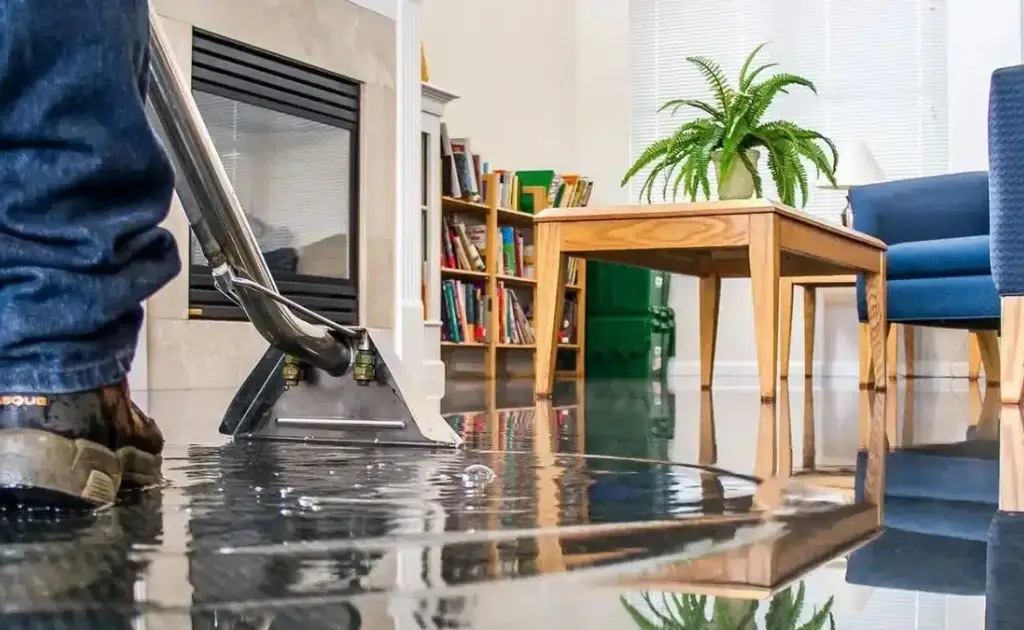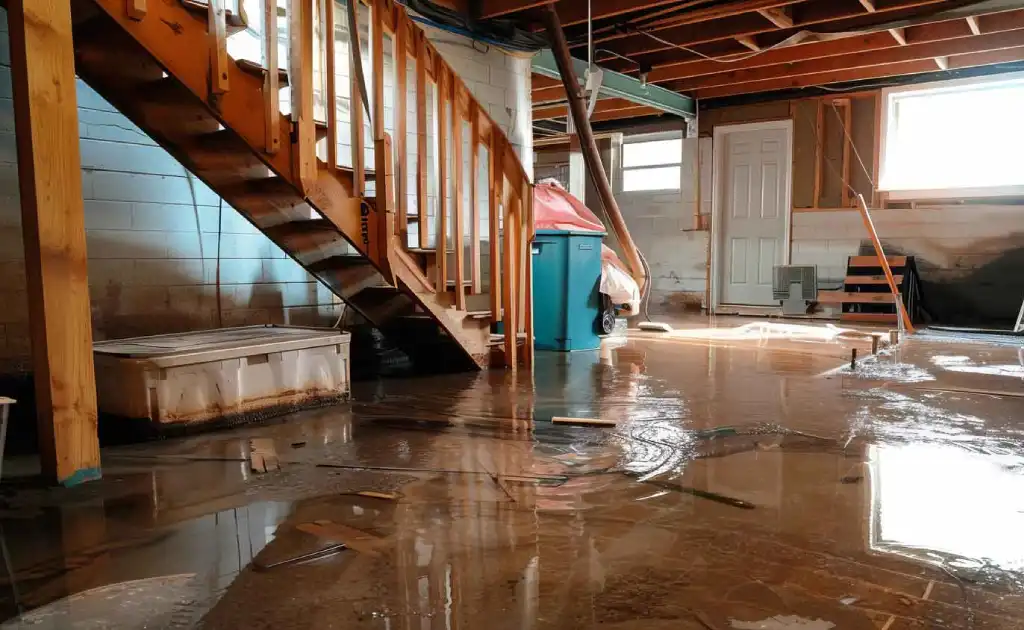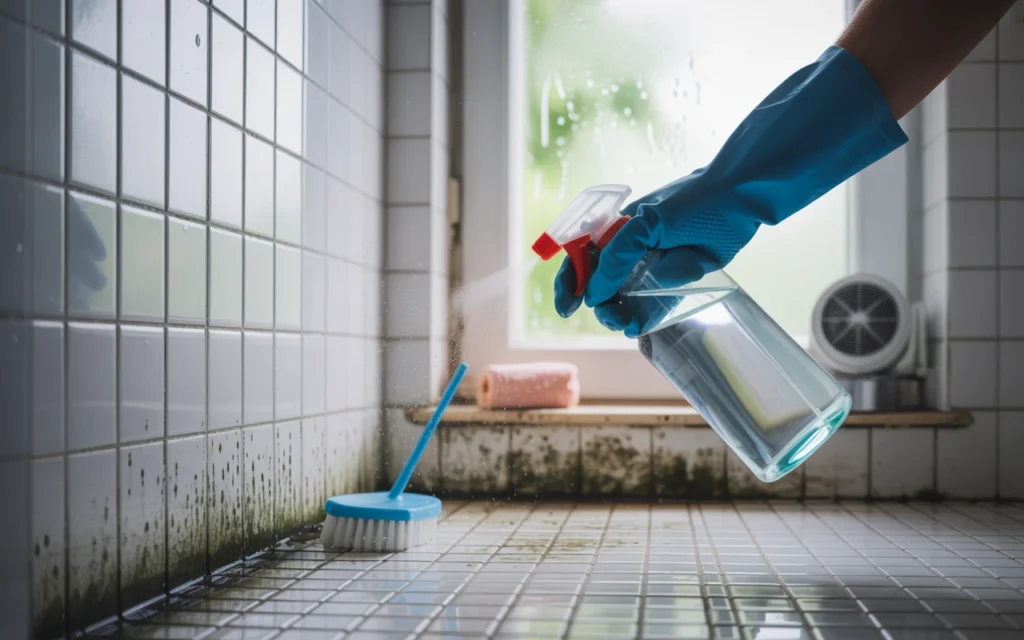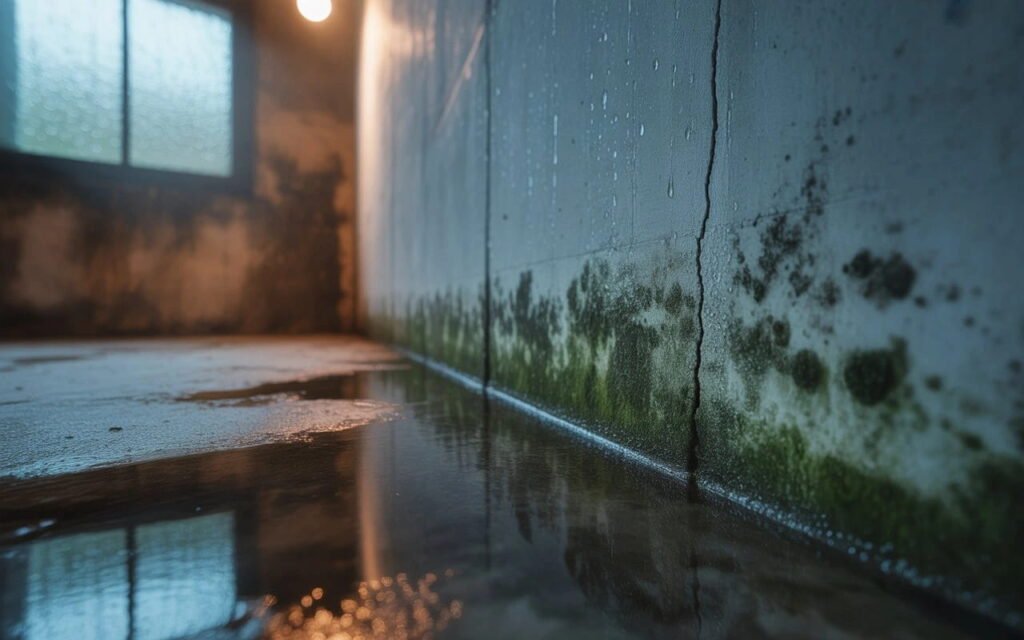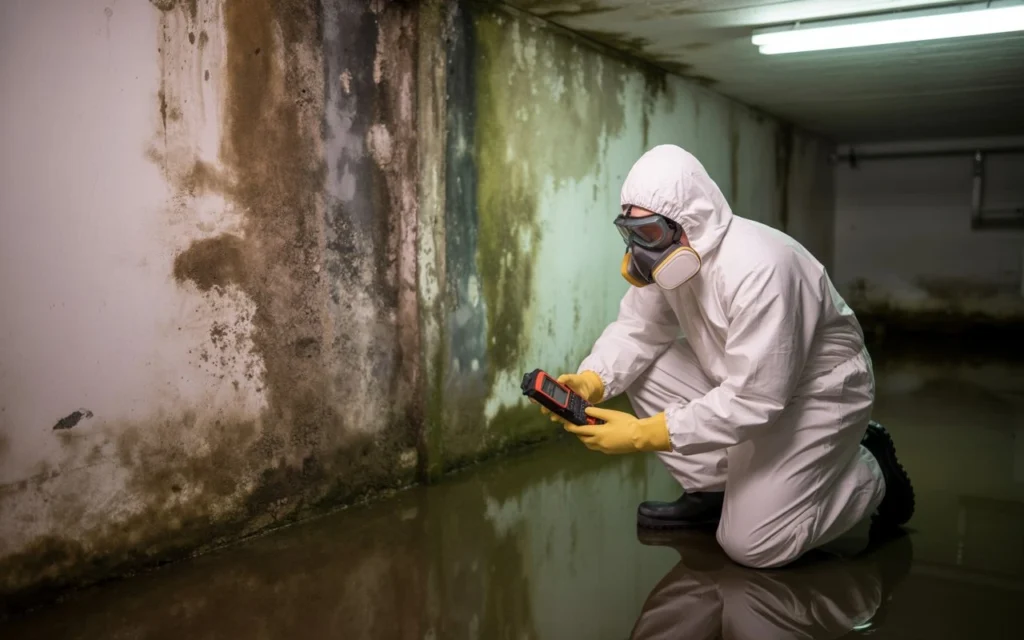Introduction
Have you noticed a musty smell in your Elmont home after heavy rain or spotted dark patches on basement walls? These signs often point to mold, a frequent issue in New York’s humid climate. Mold can start growing faster than most expect, sometimes within 24 hours, creating risks for your health and property. For homeowners and business owners in Elmont, NY, knowing how mold develops is vital to safeguarding your space. This article explains mold growth timelines, its dangers, and prevention strategies, with insights tailored to our local community.
By the end of this guide, you’ll know how to:
- Recognize mold’s rapid growth and its triggers in Elmont.
- Understand health and property risks from mold exposure.
- Apply practical prevention tips to protect your home or business.
- Identify when professional remediation is necessary.
What Is Mold and Why Does It Grow?
Mold is a fungus that forms thread-like structures called hyphae, creating visible patches on surfaces like wood, drywall, or fabric. It spreads through microscopic spores that float in the air and land on damp surfaces. The Centers for Disease Control and Prevention (CDC) notes that mold thrives on organic matter, such as cellulose in building materials, when moisture is present. In Elmont, NY, summer humidity often exceeds 60%, and frequent storms increase flooding risks, creating perfect conditions for mold remediation.
Moisture drives mold growth. Leaks from pipes, roofs, or appliances, as well as flooding or condensation, make surfaces damp. Poor ventilation in basements, bathrooms, or kitchens traps moisture, especially in Elmont’s older homes or commercial buildings. For example, a slow leak under a kitchen sink can soak drywall, giving mold both moisture and a food source.
Mold damages more than aesthetics. It weakens structural materials like wooden beams or drywall, leading to expensive repairs. Health-wise, it can trigger allergic reactions, such as sneezing, itchy eyes, or asthma flare-ups. In Elmont, aging plumbing or large HVAC systems in businesses heighten risks due to local climate patterns. Knowing these factors helps you spot and stop mold early.
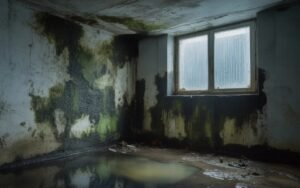
How Fast Does Mold Grow in Elmont Homes and Businesses?
Mold grows quickly in Elmont’s humid environment, often surprising property owners with its speed. Scientific studies show that mold follows a predictable timeline when conditions align:
- 24 to 48 Hours: Spores germinate on damp surfaces like drywall, wood, or insulation after a leak or flood. Elmont’s humidity, often above 70% in summer, speeds this up.
- 3 to 12 Days: Mold forms colonies, spreading across surfaces. Carpeting or cellulose-rich drywall becomes patchy with growth, especially in poorly ventilated basements.
- 18 to 21 Days: Visible mold appears as black, green, or white spots with a musty odor. This often shows up in crawlspaces or behind walls if untreated.
Several factors affect this timeline. Moisture is key; mold thrives above 60% relative humidity. Elmont’s coastal location and frequent storms increase flooding risks, particularly in basements. Warm temperatures, between 77°F and 86°F, common in New York summers, also help mold grow. Organic materials like wood or insulation provide food, with cellulose being a prime target.
Commercial properties face unique issues. HVAC systems in Elmont’s offices or retail spaces can spread spores if filters aren’t cleaned. For instance, a small leak in a commercial HVAC unit can lead to mold in ductwork within days. Homeowners often see mold in basements or bathrooms due to poor air flow or unresolved water damage. Regular checks can catch these issues early.
In addition to understanding how mold spreads, it’s also essential to know the difference between mold and mildew to prevent further complications.
Health and Property Risks of Mold in Elmont
Mold threatens both health and property, especially in Elmont’s moisture-heavy climate. Knowing these risks highlights the need for quick action.
Health Risks
Mold exposure can cause health issues, particularly for children, the elderly, or those with respiratory conditions. The CDC states that symptoms can start within hours and include:
- Allergic reactions: Sneezing, runny nose, red eyes, or skin rashes.
- Respiratory problems: Wheezing or breathing difficulties, worse for asthma sufferers.
- Toxic effects: Black mold (Stachybotrys chartarum) produces mycotoxins, potentially causing headaches or fatigue with long exposure.
In Elmont, humid and poorly ventilated spaces amplify risks. A family we met in Manhasset reported coughing and allergies after basement mold grew post-flood. Sensitive people may feel symptoms in 24 to 48 hours, while others notice effects over days.
Property Damage
Mold feeds on organic materials, weakening structures. Common materials in Elmont properties are vulnerable:
- Drywall: Absorbs water fast, fostering mold in days.
- Wood: Beams or flooring lose strength as mold eats cellulose.
- Insulation: Traps moisture, hiding mold colonies that spread.
Untreated mold can require replacing walls or floors, raising repair costs. In businesses, mold in HVAC systems or carpeting disrupts operations. A local office we assisted had mold spread across carpeting after a pipe leak, needing full replacement.
Elmont Context
Elmont’s humid summers and wet springs increase mold risks. Basement flooding during storms creates ideal conditions. Winter condensation in older homes with poor insulation also contributes. A client faced mold on basement drywall after a sump pump failed during a spring storm, showing the need for vigilance.
Rochelle Miller, an Elmont homeowner, shared: “After a pipe burst, mold spread fast in our basement. The team we worked with found every issue and restored our home with care.”
Preventing Mold Growth in Your Property
Preventing mold means controlling moisture, especially in Elmont’s damp climate. Here are practical steps to keep your home or business mold-free:
- Fix Leaks Quickly: Repair pipes, roofs, or appliances within 24 hours. A small drip can start mold growth, especially after Elmont’s frequent storms.
- Control Humidity: Keep indoor humidity below 50% with a dehumidifier. Use a hygrometer to check levels, as Elmont’s summer humidity often hits 60% or higher.
- Improve Air Flow: Install exhaust fans in bathrooms and kitchens. For businesses, clean HVAC filters regularly to stop spore spread. Attics or crawlspaces need ventilation to avoid trapped moisture.
- Dry Wet Areas Fast: After floods or spills, dry surfaces within 24 to 48 hours using fans or wet vacuums. Large water damage may need professional help to dry thoroughly.
- Monitor Risky Spots: Elmont basements are prone to flooding. Check sump pumps before storm season and insulate pipes to avoid winter condensation.
Other steps include cleaning gutters to prevent water seepage and using mold-resistant paints in bathrooms. Businesses should inspect HVAC ducts and storage areas regularly. Proactive maintenance saves you from costly mold removal Elmont repairs.
If you’re unsure about the signs of mold in your walls, take a look at our detailed guide on Signs of Mold in Walls, or learn more about how to prevent mold from spreading in your home by reading our article on How to Remove Mold from Walls
Why Choose Our Mold Remediation? Your Success, Our Guarantee
Dealing with mold requires fast, effective action, especially in Elmont’s humid and flood-prone environment. Our team provides reliable solutions designed for both homes and businesses.
Certified Experts: All technicians hold industry certifications from bodies like the Institute of Inspection, Cleaning and Restoration Certification (IICRC), ensuring safe and thorough mold remediation.
Advanced Detection and Removal: We use moisture meters, thermal imaging, HEPA air scrubbers, and industrial dehumidifiers to locate hidden mold, remove affected materials, and clean your property completely.
Local Experience: Familiarity with Elmont’s weather patterns, storms, and seasonal humidity allows us to offer targeted strategies to prevent mold recurrence.
Comprehensive Services: From minor drywall patches to large-scale mold in basements or commercial HVAC systems, we handle assessment, containment, removal, cleaning, and restoration.
Rapid Response: Mold can grow in as little as 24 hours. Our team is available 24/7 to inspect and act quickly, minimizing health risks and property damage.
Trusted by the Community: With dozens of positive Google reviews, homeowners and businesses rely on our expertise for safe, effective, and lasting mold remediation solutions in Elmont.
Choosing professional mold remediation ensures thorough cleanup, reduces health hazards, and protects your property from recurring issues in Elmont’s humid climate.
FAQs About Mold Growth and Remediation
How long does it take for mold to be visible?
Mold becomes visible in 18 to 21 days in humid conditions, like Elmont’s climate. Spores germinate in 24 hours on wet surfaces like drywall and colonize in 3 to 12 days. Regular checks catch mold early.
What causes mold to suddenly appear?
Moisture from leaks, floods, or high humidity triggers mold on organic materials like wood. Elmont’s storms or poor ventilation often cause rapid growth. Fixing water issues fast prevents spread.
How fast does mold grow on drywall?
Mold colonizes drywall in 3 to 12 days if damp, due to its cellulose content. Quick drying after water exposure prevents growth in Elmont homes.
How soon do mold symptoms appear?
Symptoms like sneezing or wheezing can start in hours for sensitive people, especially near black mold. Others notice effects in days. Ventilation and removal reduce risks.
Can I clean up the mold myself?
Small patches on hard surfaces like tiles can be cleaned with a bleach solution (1 cup per gallon of water). DIY cleaning risks spreading spores or health issues, so professional mold remediation Elmont is safer for large cases.
Conclusion
Mold grows in as little as 24 hours, creating health and property risks in Elmont’s humid climate. It triggers allergies, worsens asthma, and damages drywall or wood, leading to costly repairs. Prevention through moisture control and ventilation is essential, especially with Elmont’s frequent storms. Professional mold removal near me ensures safe, thorough cleanup for homes and businesses.
At Golden Touch Restoration Specialist, our certified team is ready 24/7 to restore your property. Contact Golden Touch for a free mold remediation consultation in Elmont, NY, today.

